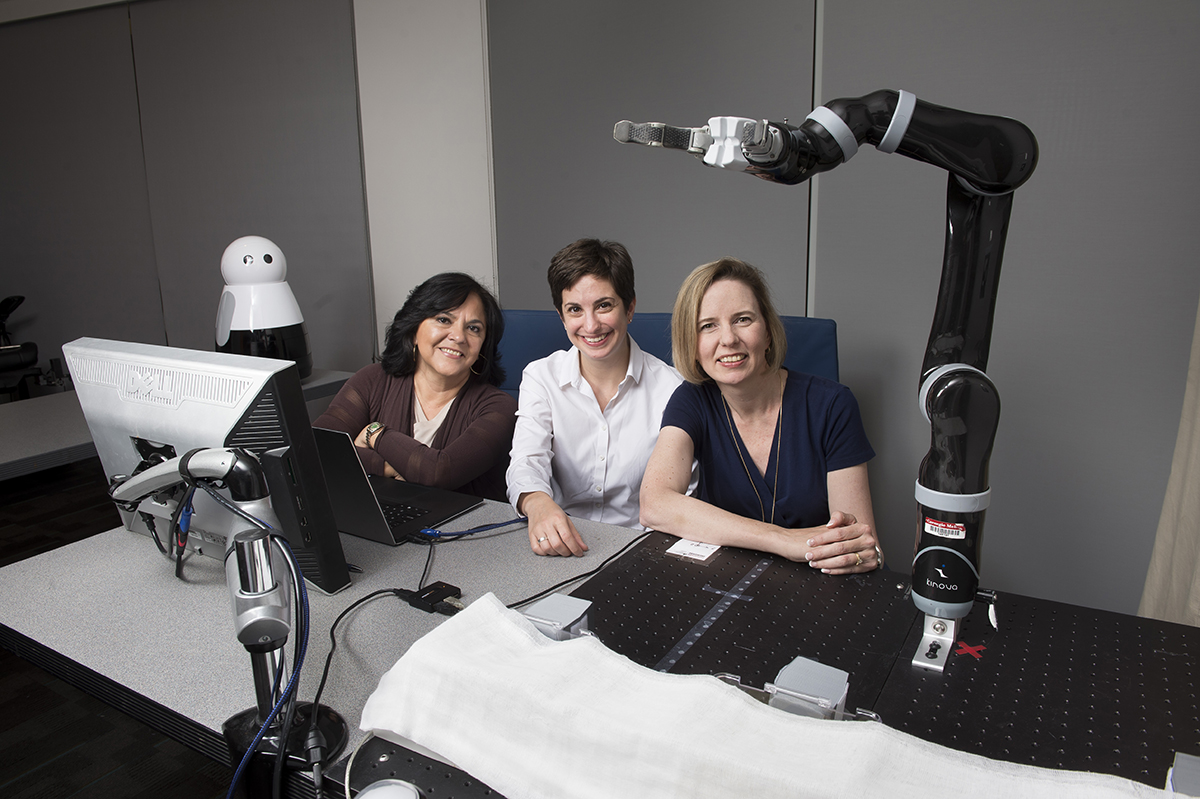Female-Led Team Uses AI to Help Machines Play Nice With Humans
Stacy W. KishWednesday, October 9, 2019Print this page.

Three Carnegie Mellon University researchers are leveraging their expertise in organizational science, cognitive science and artificial intelligence (AI) to explore how AI can help humans work together better. The collaboration includes lead investigator Anita Woolley in the Tepper School of Business, along with co-investigators Cleotilde Gonzalez in the Dietrich College of Humanities and Social Sciences and Henny Admoni in the School of Computer Science.
Woolley believes this award is an important achievement not only for her and her co-investigators, but also for Carnegie Mellon. "As leaders in both teams research and technology, it's an important acknowledgement of the role we have played and continue to play in pushing the frontiers of these disciplines," she said.
Bringing Machines Into the Fold
The researchers received a $2.8 million DARPA grant to study team collective intelligence and the theory of mind involving human and machine interactions. Team collective intelligence explores how a group of people develops a level of intelligence that only emerges from the particular skills contributed by each individual team member. Theory of the mind explores how a person can predict what will happen next.
"AI has become part of our lives. Every day, we talk to our phones and these machines understand and collaborate with us," Gonzalez said. "We want to expand this concept to situations in which a group of individuals and machines are performing a task together and can interact in effective ways."
The researchers aim to leverage these concepts to develop a machine theory of the mind for a synthetic team coach that can interact with a group to improve task outcomes. A synthetic team coach will benefit from a previously developed cognitive model that can remember the actions of the team members. This memory will allow the coach to understand and accurately predict what the team members will do next and intervene at the team level at the right time to improve the task at hand.
"I'm very interested in how intelligent synthetic agents can help teams coordinate better," said Admoni, an assistant professor in the Robotics Insitute. "I am looking forward to using my knowledge of AI and human-robot interaction in this domain of group coordination, which is a new area for me."
The goal is to have the coach work with team members to aid in the exchange of ideas and improve collaborations so tasks are performed faster and more efficiently.
Women in the Lead
The cross-disciplinary team behind this cutting-edge research is as intriguing as the research itself. Woolley brings expertise in collective intelligence in teams, Gonzalez in cognitive and decision sciences and Admoni in human-robot interactions.
"We continue to push the frontiers of these disciplines," Woolley said. "Since ours is an all-female Carnegie Mellon-based team of scientists, it shows that women are leaders in these fields where they have been typically underrepresented."
The project is also drawing on the talent at all levels of professorship at CMU and offers young researchers, both undergraduate and graduate, a model of a women-led team in male-dominated fields of science and engineering.
"I hope that I can be a role model for women in computer science," Admoni said. "I think that science would benefit greatly from more diversity in the field."
Byron Spice | 412-268-9068 | bspice@cs.cmu.edu<br>Virginia Alvino Young | 412-268-8356 | vay@cmu.edu
